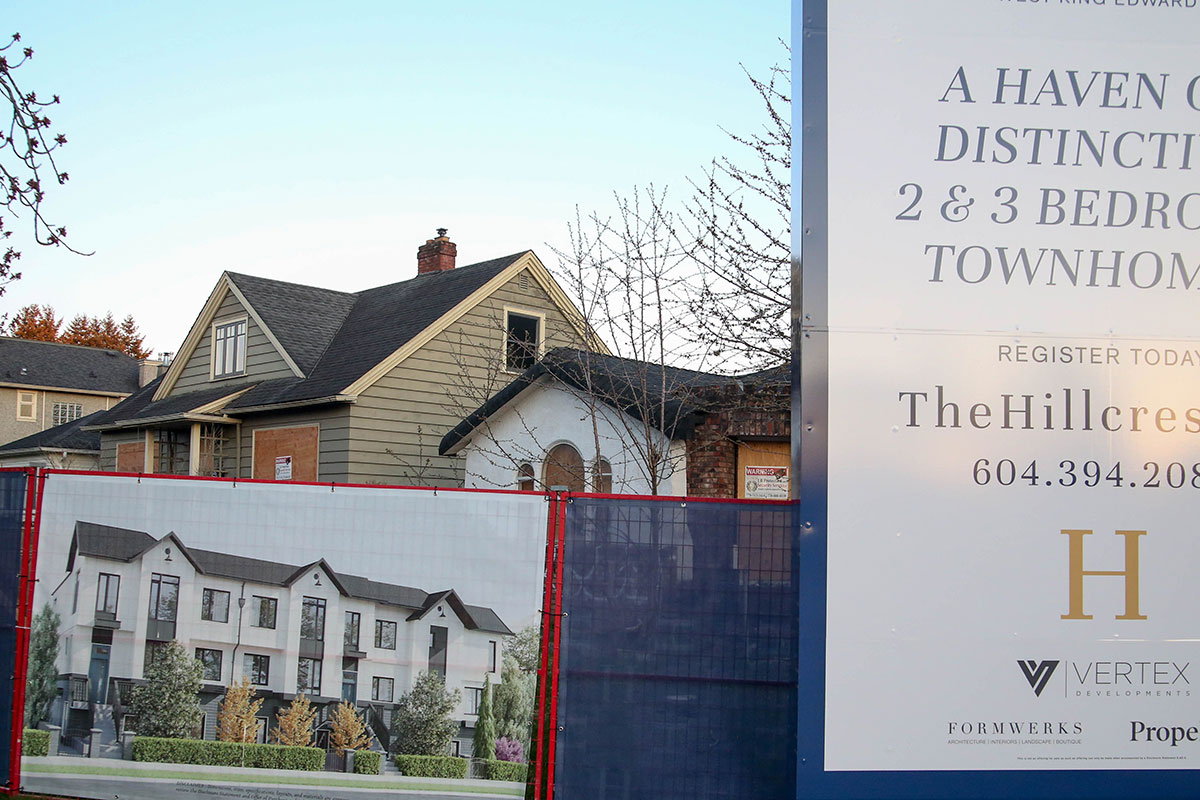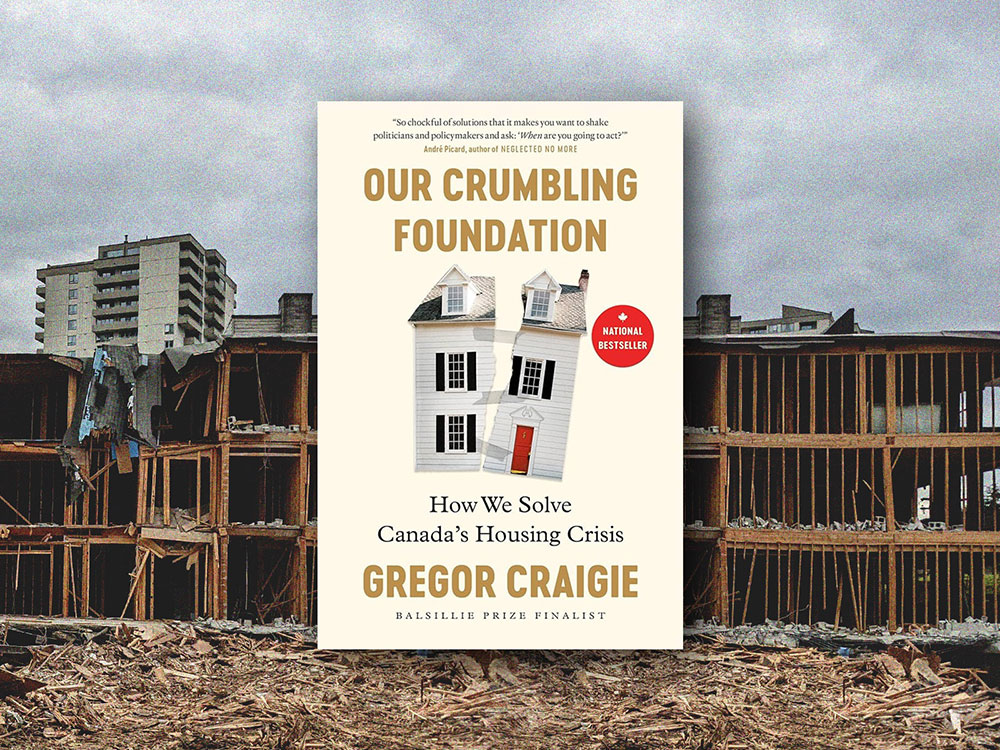- Our Crumbling Foundation: How We Solve Canada’s Housing Crisis
- Random House of Canada (2024)
No matter what Canadian city you live in, you’ll know the dismal feeling of watching rents and home prices climb higher and higher.
In Toronto, a nurse who works at St. Joseph’s Health Centre would need to pay $3,900 a month for the cheapest one-bedroom apartment nearby.
In Montreal, average rents for a two-bedroom are $1,800 a month, but leasing them out on Airbnb can fetch $460 a night for hip and happening neighbourhoods like Hochelaga-Maisonneuve, so landlords are opting for short-term renters rather than long-term ones.
In Brampton, Ontario, a sudden four per cent jump in mortgage rates meant that the Malisetty family could no longer afford the $1.9-million pre-sale they were barely able to pay for, with payments ballooning up to $10,000 a month.
On the banks of B.C.’s Cowichan River, not even mobile homes are safe. Carolyn, a retired trucker and logger, lived in an RV park for five years, paying $495 a month until the property was sold, and the landlord wanted residents to pay twice as much.
Such are the ingredients of the Canadian housing story told by journalist Gregor Craigie in his new book, Our Crumbling Foundation. It’s a coast-to-coast primer on the crisis, touring the country city by city.
Yes, real estate listings are depressing. And Craigie introduces us to everyone trying to get their foot in the door of the market. There are Nova Scotians struggling to keep up with house prices that increased by $100,000 in a little over a year. There is a Vancouver couple with three kids who ditched living in a house with grandparents (free) for a Calgary townhouse of their own ($287,500). There are young Toronto nurses who have picked up second jobs with plastic surgeons doing Botox injections to help make ends meet.
But the book also introduces readers to people in greater housing need: those who are in search not of a home to buy or a rental with an extra bedroom, but of adequate shelter.

‘You’re on your own now’
In Calgary, Ukrainian refugees are temporarily shuffled into motels, nervous about entering the rental market on their own.
In Ottawa, Cindy, a senior, was paying $1,100 a month for her apartment. Affordable, but it had “cockroaches, cockroaches and bedbugs,” she said. She moved into another for slightly more, but the building was scooped up by a new company that jacked up the rent. Cindy is on a fixed disability benefit.
In Duncan, Gina and Josh had survived an apartment fire, having leapt from their fourth-storey unit. They ended up living on the streets, struggling with addiction. One winter, they were camping out in an A&W parking lot. Gina went into the restaurant for a cup of coffee, but when she returned, Josh was dead on the freezing pavement.
In the words of a radical reverend from Duncan, “the reason we’re in a housing crisis is because the federal and provincial governments walked away from housing and said, ‘It’s all the private sector’s; you’re on your own now.’” He views housing as a spiritual and political crisis.
These personal stories of housing and instability are the strength of the book. They’re backed up by histories of what Canadian governments of all levels have been doing on the housing file, alongside the wicked mix of intersecting problems that got us to where we are today, from austerity to immigration to speculation. Try not to gag at the mention of an ebook titled The Airbnb Expert’s Playbook: Secrets to Making Six-Figures as a Rentalpreneur.
Every other chapter leaves Canada and visits an international destination, with colourful insight on how the problem is tackled under different regimes, from Singapore’s strong public housing, to Portland’s “cottage clusters,” to how Helsinki champions “housing first,” offering people apartments, but also drug consumption sites and skills training.
“Look, you don’t need to solve your problems before you get a home,” says the CEO of a housing non-profit there. “Instead, a home should be the secure foundation that makes it easier to solve your problems.”
After the book was published, Craigie — the beloved CBC host of On the Island — had a chance to interview Prime Minister Justin Trudeau, who said he hasn’t “eased off” on spending. He bragged about his government’s National Housing Strategy and the recent Housing Accelerator Fund, and blamed the post-pandemic challenges of inflation and interest rates for having “knocked” things around.
So what more is to be done?
In the appendix titled “A List of Repairs,” Craigie lays out 37 solutions surfaced from his home tours of the country and around the world. In short, build more of everything, discourage speculation and safeguard affordability. Oh, and go easy on the parking.
Near the end of the book, Craigie quotes an independent researcher from his hometown named Leo Spalteholz, the author of the Housing Hunt Victoria blog.
“We’ll have to accept that the white picket fence is gone,” said Spalteholz. “But we should be able to figure out how we can make it affordable to have a comfortable home.” ![]()

















Tyee Commenting Guidelines
Comments that violate guidelines risk being deleted, and violations may result in a temporary or permanent user ban. Maintain the spirit of good conversation to stay in the discussion and be patient with moderators. Comments are reviewed regularly but not in real time.
Do:
Do not: